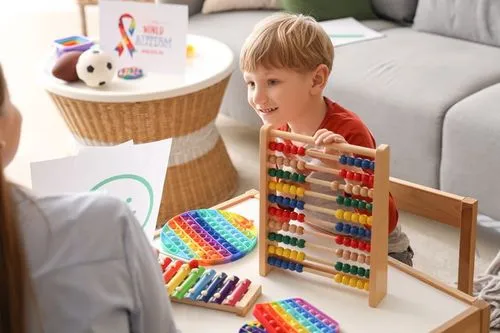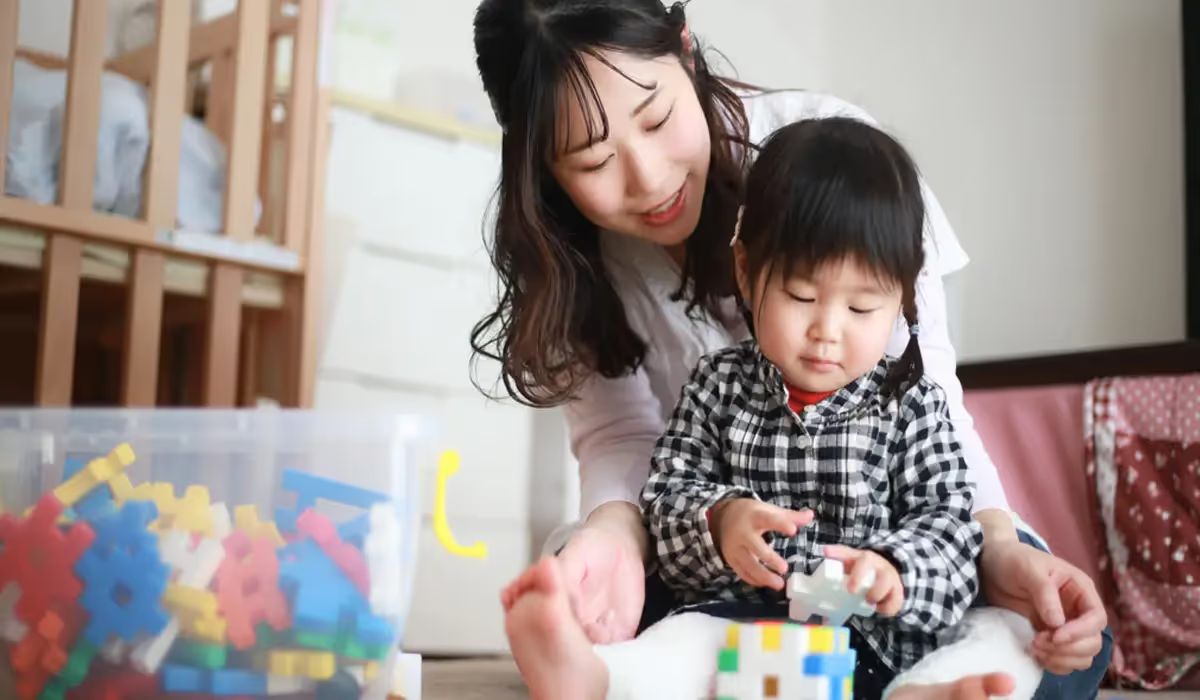Navigating the social world can be challenging for anyone, but for children on the autism spectrum, it can feel particularly complex. Many individuals with autism spectrum disorder (ASD) experience rejection-sensitive dysphoria (RSD), a heightened sensitivity to perceived rejection that can trigger intense emotional responses.
In this blog, we will explore how ASD can co-exist with RSD, their differences and commonalities, and how ABA therapy can significantly impact the emotional well-being, social interactions, and overall quality of life of children with autism and RSD.

What Is Autism & How Does It Manifest in Children?
Autism spectrum disorder (ASD) is a neurodevelopmental disorder that affects communication, social interaction, and behavior. It is called a "spectrum" because it manifests in a wide range of ways, from mild to severe, and each individual experiences autism uniquely.
Autism can present itself in different ways, and there are various types and levels of autism. Here are some common characteristics that may be present in children with autism:
- Social communication challenges: Children with autism might have difficulty understanding social cues, interpreting facial expressions and body language, and engaging in conversations. They may struggle with understanding humor, sarcasm, or social norms.
- Restricted interests and repetitive behaviors: Children with autism often have intense interests in specific topics or activities. They may engage in repetitive behaviors, such as lining up toys or repeating phrases. These interests and behaviors can vary greatly from child to child.
- Sensory sensitivities: Many children with autism experience sensory sensitivities, meaning they are more sensitive to sights, sounds, smells, tastes, or textures. They might be bothered by loud noises, bright lights, or certain textures.
- Difficulties with change: Children with autism often struggle with changes in routines or unexpected events. They may become anxious or upset when their usual schedule is disrupted.
While there are common characteristics, remember that each individual with autism is unique. Understanding and supporting their individual needs and strengths is vital.

What Is Rejection Sensitive Dysphoria & How Does It Manifest in Children with Autism?
Rejection-sensitive dysphoria (RSD) is a term used to describe a condition where individuals experience intense emotional pain and distress in response to perceived rejection, criticism, or social disapproval. While it can occur in people without ASD, RSD is commonly associated with autism, and research suggests that individuals with autism are more likely to experience it due to differences in brain structure and social processing abilities.
RSD can manifest in a variety of ways in children with autism. Here are some common signs:
- Intense emotional responses: Even seemingly minor social slights or perceived criticism can trigger intense emotional reactions, such as tears, anger, frustration, or withdrawal.
- Emotional dysregulation: Children with RSD often struggle to regulate their emotions and may experience intense emotional outbursts or difficulty calming down after a perceived rejection.
- Heightened sensitivity: They may be highly sensitive to social cues and facial expressions, making them more likely to misinterpret social interactions as rejection.
- Negative self-perceptions: RSD can contribute to negative self-talk, low self-esteem, and feelings of inadequacy.
- Social anxiety: The fear of rejection can lead to social anxiety, making it difficult to engage in social interactions or take risks.
- Challenging behaviors: RSD can also lead to challenging behaviors, such as tantrums, aggression, or self-harming behaviors, as a way of expressing intense emotional distress.
Rejection Sensitive Dysphoria and Autism: The Core Differences
To better understand the connection between autism and Rejection Sensitive Dysphoria (RSD), it may be helpful to first examine their distinguishing features. While both conditions impact social interaction and emotional well-being, they have different origins and core characteristics.
Here is a breakdown:
Understanding these key distinctions between ASD and RSD is essential for providing effective support. While ASD is a neurodevelopmental disorder rooted in brain differences, RSD is a heightened sensitivity to social rejection, often co-occurring with ASD. This understanding allows us to develop interventions and strategies tailored to the specific challenges each condition presents.
RSD vs Autism: The Core Similarities
While ASD and RSD are distinct, there are significant overlaps that contribute to the difficulties individuals with autism often experience in social settings.
Here are some commonalities:
Recognizing these shared features between ASD and RSD offers a more comprehensive understanding of the difficulties individuals with autism face. Their struggles with social interactions, emotional regulation, and self-perception highlight the need for tailored support that addresses both ASD and RSD. This approach can empower them to navigate social environments more confidently and improve their overall well-being.
Why Is Rejection Sensitivity a Challenge for Children with Autism?
Here are some key reasons why RSD presents unique obstacles for individuals on the autism spectrum:
- Difficulty understanding social cues: Children with autism often struggle to understand and interpret subtle social interactions, which can make them more vulnerable to misinterpreting social interactions as rejection.
- Intense emotional responses: The emotional intensity associated with RSD can make it challenging for children with autism to navigate social situations and maintain healthy relationships.
- Difficulty managing emotions: Children with autism may already have difficulties with emotional regulation, and RSD can exacerbate these challenges, making it harder to cope with intense emotions.
Understanding these challenges is essential for providing appropriate support and interventions to help children with autism manage RSD.

ABA Therapy Strategies to Help Children with Autism Manage Rejection Sensitive Dysphoria
Rejection Sensitive Dysphoria (RSD) can significantly impact the lives of children with autism, making social interactions and emotional well-being challenging. Applied Behavior Analysis (ABA) therapy offers a powerful tool to help children manage RSD and develop coping mechanisms.
Here are some strategies ABA therapists utilize:
- Social skills training: ABA therapists provide individualized social skills training to help children understand social cues, navigate social interactions, and build healthy relationships. This can include teaching them about nonverbal communication skills, interpreting facial expressions, and engaging in appropriate conversations.
- Emotional regulation skills: ABA therapists teach children to identify, manage, and regulate their emotions. This can involve techniques like deep breathing exercises, relaxation techniques, and positive self-talk to help them cope with intense emotional responses.
- Coping strategies: ABA therapy equips children with effective coping skills for handling difficult situations and managing overwhelming emotional responses. This might include teaching them how to take breaks when needed, utilize sensory tools, or engage in calming activities.
- Challenging negative thoughts: ABA therapists help children challenge negative thought patterns and develop a more positive self-image. This can involve identifying and reframing negative thoughts, building self-esteem, and encouraging positive self-talk.
- Creating a supportive environment: ABA therapists collaborate with parents and caregivers to create a safe and supportive environment where children feel understood and validated. This fosters a sense of belonging and encourages open communication about their challenges.
At Rise Up For Autism, we incorporate these strategies to help children with autism manage the challenges of RSD and navigate social situations more effectively. This empowers them to build healthy relationships, develop emotional resilience, and enjoy their everyday lives.
Rise Up For Autism: Your Trusted ABA Support in Illinois
Rejection-sensitive dysphoria is a complex condition that can significantly impact the lives of children with autism. It is essential to understand RSD and provide appropriate interventions and support systems to help children navigate the social world more effectively.
The Rise Up For Autism team of highly qualified BCBAs is dedicated to providing evidence-based ABA therapy tailored to meet the unique needs of each child. Contact us to provide the right support to your child and develop their healthy coping mechanisms, build confidence, and enjoy fulfilling lives.






